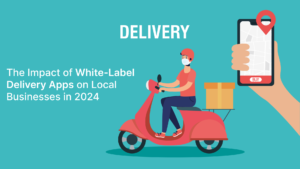The world of accounting has experienced significant digital transformation in recent years. Traditional accounting practices, which relied heavily on manual processes and paper documentation, are being replaced by more efficient and automated digital solutions. The shift to Software as a Service (SaaS) has played a pivotal role in enabling businesses to manage their finances seamlessly and securely, without the need for physical documentation.
SaaS-based accounting software allows organizations to manage financial transactions, generate reports, and ensure compliance, all within a cloud-based infrastructure. This transformation offers several advantages, including automation, real-time access to financial data, and enhanced security. In this blog, we will explore how SaaS is revolutionizing accounting software, the benefits it brings, and how businesses can leverage SaaS Development Services to build cutting-edge solutions.
The Rise of SaaS in Accounting Software
SaaS has emerged as a game-changer for accounting software, providing businesses with a reliable, cloud-based platform to manage their financial operations. Unlike traditional accounting software that requires on-premise installation and hardware support, SaaS platforms offer flexibility, accessibility, and cost efficiency.
The shift towards SaaS-based accounting software comes at a time when businesses are increasingly seeking paperless solutions that reduce the risk of errors and improve efficiency. Whether you’re a small business owner or a large enterprise, SaaS accounting solutions provide a streamlined and scalable way to manage finances without the burden of maintaining physical records or outdated software.
Key Features of SaaS-Based Accounting Software
SaaS-based accounting platforms offer a range of features designed to simplify and enhance financial management. Some of the key functionalities include:
1. Cloud-Based Infrastructure
The cloud-based nature of SaaS platforms ensures that businesses can access their accounting data from anywhere, at any time. This eliminates the need for physical infrastructure and allows teams to collaborate on financial data in real-time.
2. Automation of Accounting Tasks
SaaS platforms automate many routine accounting tasks, such as invoicing, payroll management, and expense tracking. Automation reduces manual effort, minimizes errors, and allows businesses to focus on more strategic financial activities.
3. Real-Time Financial Reporting
SaaS-based accounting software offers a significant advantage by providing real-time financial reports.. Business owners and financial managers can access up-to-date reports on cash flow, profit and loss, balance sheets, and other key financial metrics, enabling informed decision-making.
4. Scalability
SaaS accounting platforms are designed to grow with the business. Whether a company is expanding its operations or introducing new revenue streams, SaaS solutions can scale to accommodate increasing financial data and transaction volumes.
5. Enhanced Data Security
Data security is a paramount concern for businesses, particularly when safeguarding sensitive financial information. SaaS accounting platforms prioritize security by employing encryption, secure access controls, and regular data backups to protect sensitive financial data.
Benefits of SaaS Accounting Software for Businesses
The adoption of SaaS-based accounting software brings several benefits to businesses, transforming how they manage finances and ensuring long-term success.
Here you can find some of the most significant advantages:
1. Paperless Accounting
Gone are the days of managing physical ledgers and paper receipts. SaaS accounting software offers a paperless environment where all financial transactions, invoices, and reports are stored digitally in the cloud. This eliminates the risk of lost documents, reduces clutter, and streamlines the accounting process.
2. Cost Savings
SaaS accounting platforms operate on a subscription-based model, which is often more cost-effective than traditional accounting software that requires upfront purchase and regular maintenance. With SaaS, businesses avoid high setup costs, ongoing maintenance fees, and hardware expenses.
3. Real-Time Access to Financial Data
Unlike traditional software that requires manual updates, SaaS platforms provide real-time access to financial data. Business owners and accounting teams can view live data on financial transactions, allowing them to respond quickly to changes and make more accurate financial forecasts.
4. Mobile Accessibility
SaaS platforms are designed to be accessible across devices, including mobile phones and tablets. By collaborating with the Best Mobile App Development Company in the USA, businesses can ensure that their accounting platform is optimized for mobile use, allowing financial data to be accessed and managed on the go.
5. Compliance with Financial Regulations
SaaS accounting platforms are regularly updated to ensure compliance with evolving financial regulations and tax laws. This helps businesses avoid potential legal issues and ensures that their financial practices are in line with government requirements.
How SaaS Development Services are Shaping the Future of Accounting
The future of accounting lies in automation, scalability, and seamless integration of financial processes. SaaS development services play a critical role in shaping this future by building cloud-based accounting platforms that meet the needs of modern businesses.
These services enable the creation of highly customizable and scalable accounting solutions, tailored to the specific needs of each organization. From integrating advanced AI algorithms for predictive financial analysis to ensuring seamless integration with third-party financial systems, SaaS development services deliver the technical expertise required to develop sophisticated accounting platforms.
The Importance of Partnering with a Fintech App Development Company
Building a robust and secure SaaS platform for accounting requires collaboration with a specialized Fintech App Development Company. Fintech developers possess the expertise needed to create solutions that comply with financial regulations, offer data security, and provide a user-friendly experience.
Fintech developers ensure that the platform’s financial functionalities, such as invoicing, payroll, and expense tracking, are efficient and reliable. Moreover, they focus on building secure payment gateways and implementing advanced encryption protocols to safeguard sensitive financial information.
Leveraging Mobile-Friendly Accounting Solutions
In today’s fast-paced business environment, mobile accessibility is crucial. Business owners, accountants, and financial teams need the ability to manage finances on the go. By working with an app development company, businesses can ensure that their SaaS accounting platform is optimized for mobile devices.
Mobile-optimized accounting solutions enable users to access financial data, generate reports, and manage transactions from their smartphones or tablets. This added flexibility makes accounting more convenient and ensures that financial management tasks can be performed anytime, anywhere.
Challenges in SaaS-Based Accounting Software
While SaaS accounting platforms offer numerous benefits, there are some challenges that businesses may encounter:
1. Data Privacy and Security
Given the sensitivity of financial data, ensuring robust security measures is crucial. SaaS platforms must implement strong encryption, access control, and regular audits to protect against data breaches.
2. Integration with Legacy Systems
Many businesses still rely on legacy accounting systems, and integrating these with modern SaaS platforms can be challenging. However, SaaS developers can address this issue by creating APIs and tools that facilitate seamless integration.
3. Adapting to Change
The shift from traditional accounting to SaaS-based platforms may require businesses to adapt to new workflows. Proper training and onboarding are essential to ensure that teams can fully leverage the benefits of the new system.
Conclusion
SaaS-based accounting software provides businesses with the tools they need to manage their finances in a paperless, efficient, and cost-effective manner. Through cloud-based infrastructure, real-time data access, and automation, businesses can achieve greater accuracy and scalability in their financial operations.



